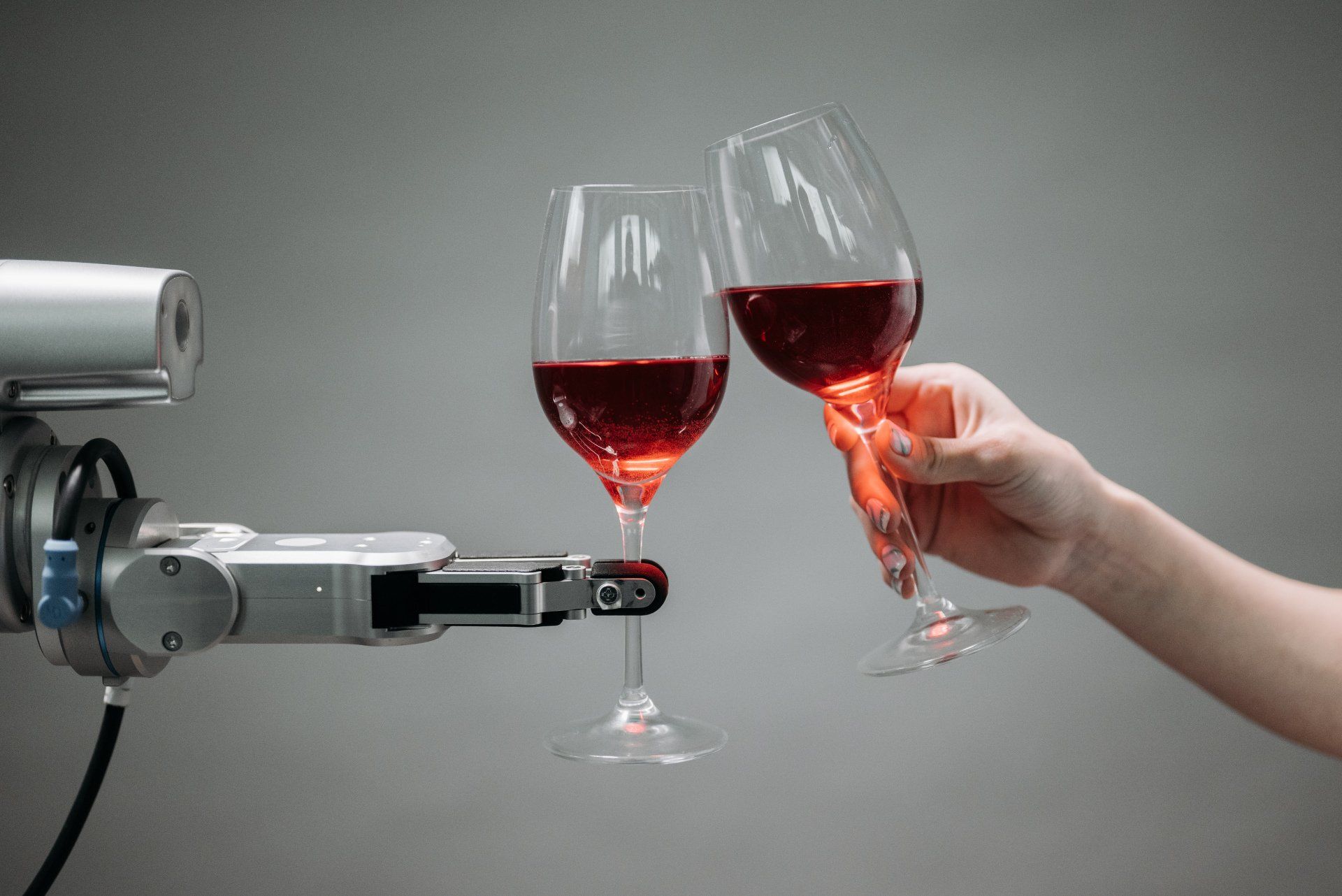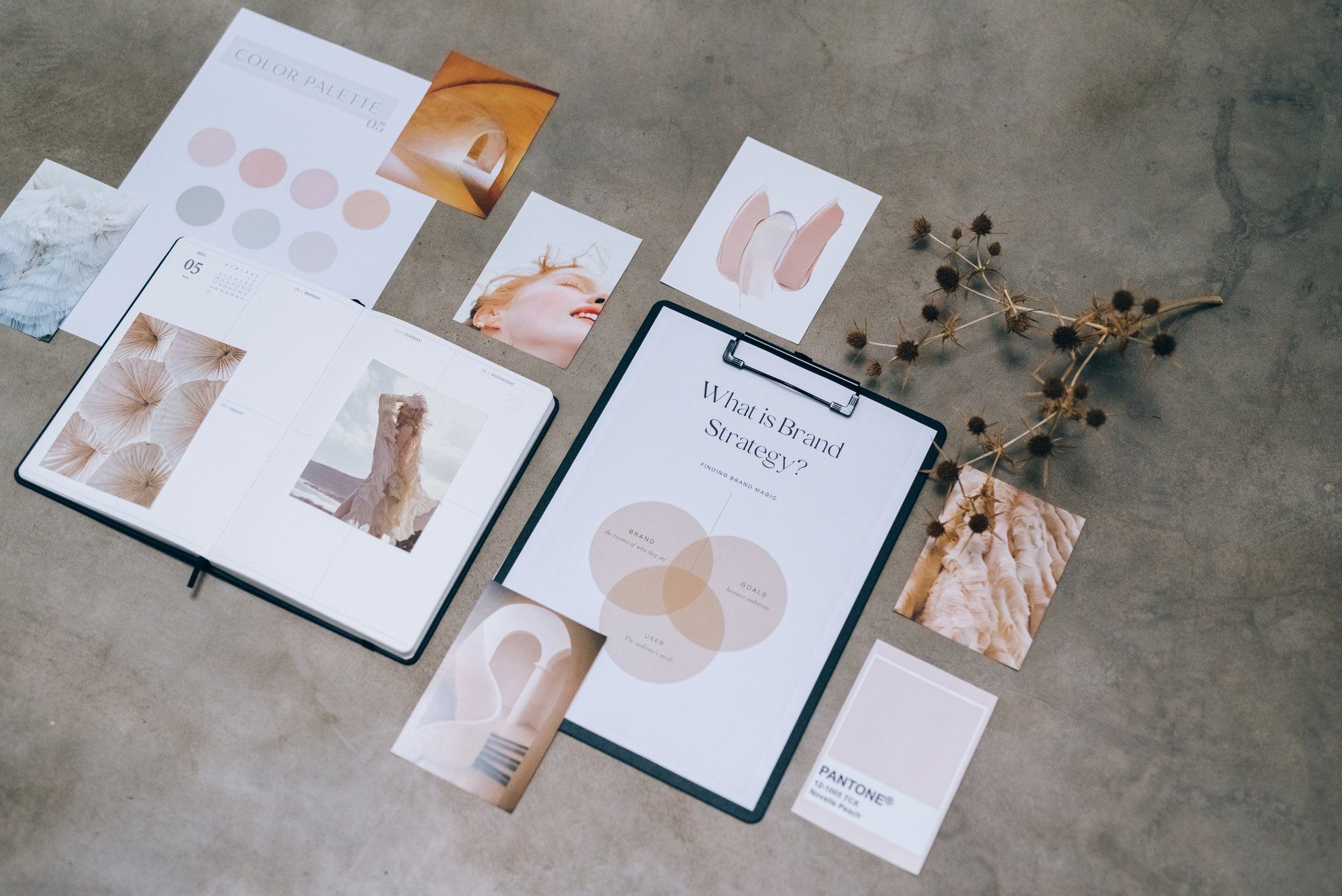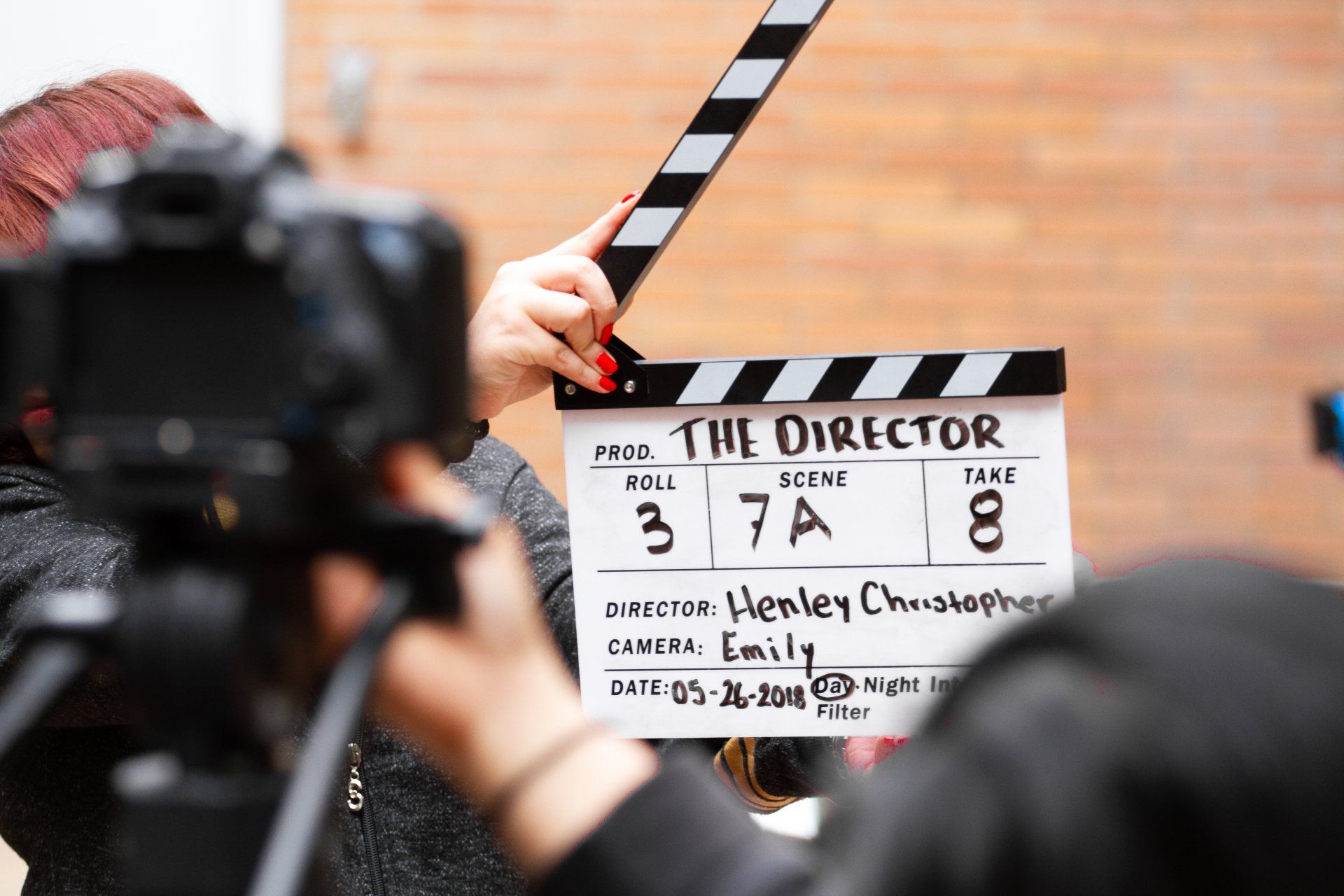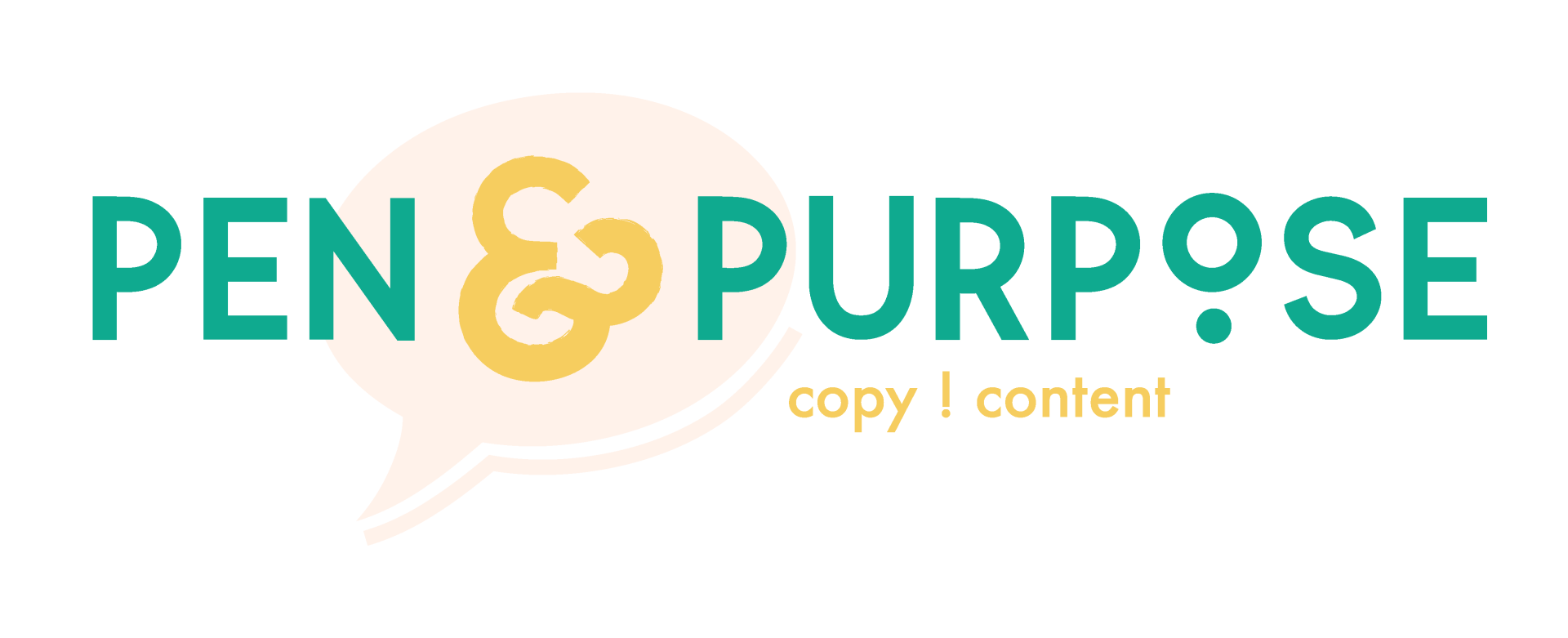blog
About The author
Hi! I'm Emily Lewis, owner + copywriter at Pen and Purpose. I help companies win clients with words and use content to connect with buyers. Clients hire me to develop their brand stories, build content strategies, and deliver copy that converts readers into customers. This blog shares word-nerd tips, content marketing resources, and occasional reflections of the entrepreneur experience. Thanks for stopping by!

‘Lucky Girl Syndrome’ is one of the viral trends on TikTok sweeping the nation. I’m not a TikToker and heard about it much later on a medium more targeted to my (cough - older - cough) demographic - Hoda & Jenna . But it caught my attention because it probably works but for reasons that have nothing to do with luck. What is 'Lucky Girl Syndrome'? The Lucky Girl Syndrome is characterized by an individual's ability to attract seemingly fortuitous outcomes consistently. It’s manifestation in a cuter outfit, complete with pretty TikTokers sharing their amazing results and swearing it will change your life. From winning contests to stumbling upon unexpected opportunities, these women appear to attract luck and claim you can too! How Does It Work? Explanations of how it works center on the power of positive thinking - if you believe you’re lucky, you will be. But is there more to it? It reminds me an exercise I did earlier this year, in which I wrote my own obituary– Donald Miller’s more morbid approach to getting your desired outcomes. ‘Lucky Girl Syndrome’ and writing your own obituary both challenge you to think about and declare what you want. ‘Lucky Girl Syndrome’ focuses on believing you’ll get what you want. Donald Miller’s exercise (as part of his 2022 book Hero on a Mission) challenges you to take it a step further and figure out what you want your life to mean- what do you want and why? With his approach, you create 10-year, 5-year, and 1-year goals to ultimately work towards what’s written in your obituary. For both, you need to answer to the question: what do you want? So, is knowing what you want and believing it will happen all you need to get it? Lucky Girl Syndrome says yes because of two psychological factors: 1. Cognitive Biases: Human cognition is susceptible to biases that influence perception and decision-making. Your brain looks for confirmation of what you already believe. But it doesn’t just influence your belief, it influences your actions. If you believe you’re lucky, you seek out opportunities to confirm it. This is often subconscious, so you feel lucky when you get what you want, but it’s really, at least partially, the result of your actions. 2. Reward System Activation: Neurologically, experiences perceived as positive or rewarding trigger the brain's reward system, primarily involving the release of neurotransmitters like dopamine. My friend @mashalyons posted a Jamie Varon quote on Instagram stories, which embodies this “syndrome”: "Find a way to love your life so much that you feel lucky to be you. Like its a privilege just to wake up as yourself. Like you are utterly charmed by your own life. What a beautiful home you've built. What incredible friends you get to text all day. How you spend your time and your life- genius. What fun! What a strong mind you have. What a way you care for yourself and listen to your needs. What great kids or dogs or cats or plants you've raised. Wow, you've got this whole life thing figured out. Or, if not, look at you, trying to figure it out and fight for your joy. How lucky you are that you get to be you." - Jamie Varon Your luck is subjective. If you feel lucky, you are. The Role of Gratitude Believing you are lucky requires gratitude for what you have as much as it requires thinking you’ll get what you want. Gratitude is essential because, it enables: A Positive Mindset: Gratitude shifts your focus from what you lack to what you have. This positive mindset can fuel your motivation, resilience, and satisfaction. Resilience: Gratitude reframes setbacks as opportunities. When you're grateful, you're better equipped to find silver linings in difficult situations and learn from setbacks. Improved Relationships: Gratitude strengthens relationships by fostering a sense of connection and appreciation for others. Being genuinely appreciated helps others feel more connected to you, which increases their desire to help you. Enhanced Mental Health: Gratitude is linked to numerous mental health benefits, including reduced stress, anxiety, and depression - all of which get in the way of feeling lucky. Increased Productivity and Performance: Studies have shown that gratitude correlates with success. When you're grateful for the opportunities, resources, and abilities you have, you're more likely to make the most of them. Grateful individuals tend to be more proactive, creative, and goal-oriented. Better Opportunities: The laws of attraction suggests that like attracts like. When you radiate gratitude, you attract more positive experiences and opportunities into your life. Others are drawn to those who exude positivity and appreciation. Physical Health Benefits: Gratitude has been linked to numerous physical health benefits, including better sleep, stronger immune function, and lower blood pressure. The Role of Knowing What You Want When 'Lucky Girl Syndrome' asserts that if you believe good things will happen to you, they do, it forces you to define “good things”, which does the following: Sets Goals: When you know where you’re going, getting there is much easier. Improves Self-Awareness: Knowing what you want requires self-awareness—understanding your strengths, values, and passions. This adds meaning to your life and helps you understand why you want the things you do. Empowers You: A clear sense of what you want empowers you to take control of getting it. Donald Miller’s obituary exercise encourages you to look at not just what you want, but how you’re going to get there. His approach is ideal for planners, Enneagram 3s , and people with very specific goals. But if that approach doesn’t appeal to you, knowing what you want and believing you will get it enables your subconscious to work towards it. Maybe that's enough. I'm not saying that knowing what you want and believing you'll get it eliminates obstacles, failures, and disappointments. Nor am I arguing that luck has nothing to do with success or good outcomes, a number of studies and books confirm that it does. But how much of a person’s luck is fueled by gratitude, self awareness, and faith?

Two years ago, I tried the marketing and copywriting AI tool Jasper (at the time branded as Jarvis). I concluded it and similar AI tools weren't worth my time or investment because the output was generic, repetitive and sometimes nonsensical. Then in November 2022, ChatGPT launched and quickly went viral on social media as users shared examples of the impressive ways they were using it. For content creation and copywriting, it was more advanced than any other AI tool I’d seen and free! The AI Copywriting Revolution 🚀 Fast forward to today, AI ( thanks to ChatGPT ) has evolved. It's now the hottest trend in town, with many media outlets predicting AI-tools will revolutionize business practices across every major industry. So, what's behind this meteoric rise in popularity? Let's break it down: Efficiency & Speed: AI tools like GPT-4 have turbocharged the writing process. A first draft that once took a writer 1-2 hours can now be done in minutes. Consistency: AI tools maintain a consistent tone and style regardless of who is inputting the information. Scalability: Not only do AI-tools enable you to create content in a fraction of the time you could do it manually, they allow you to outsource creating it to anyone that can input information. At least in theory. Top AI Tools for Business & Marketing 🛠️ While I don’t believe copywriting AI tools are a good replacement for a human writer of any skill level, they have drastically improved since 2021, and today’s AI tools are absolutely worth investing in. When coupled with a human, these are my favorite AI writing tools: GPT-4: I used it to generate this post. While I did a lot of editing, it gave me a first draft, which likely would’ve taken me close to an hour to write without assistance. Feed it a prompt, and it'll churn out a draft in minutes. The better and more detailed your input, the better output it delivers. And you can give your tool feedback to keep editing the draft. Grammarly: The free version spots grammatical errors and helps you enhance readability. Grammarly Premium does everything the free version does, plus checks for plagiarism, offers recommendations based on over 400+ writing styles, and has an AI writing assistant (although not as sophisticated as GPT-4). SurferSEO: Using AI to analyze top-performing content in your industry, SurferSEO helps you craft SEO-optimized copy based on keyword searches and queries. There are hundreds of AI tools available and dozens specifically for copywriting. Pick a few that work for you. Trying to use too many tools can easily derail your efficiency and productivity. AI needs you to function, not the other way around. Maximizing the AI Advantage 🚀 Now that you have your favorite AI tools in hand, how do you squeeze every last drop of potential from them? Here's the playbook: Customize, Don't Compromise: Don’t expect perfection. AI is not a mind-reader. It’s an interpreter of the knowledge and experiences you give it. It also pulls from other sources around the web to complete your request. The content you publish becomes your digital portfolio, so don't let AI tools diminish the quality of it. Quality Control: Always have a human check the output and edit as needed. I've never published an AI-generated piece that didn’t require edits. Feedback Loop: Get feedback from your marketing tools, audience, customers, or team on AI-generated content. If they report a decrease in quality, relevance or effectiveness, try changing your input or editing processes. What AI Can't Replace 🧠 AI can’t replace you. Because while it can put words on paper for you, it lacks: Creativity: The AI may paint by numbers, but the canvas is still your domain. Innovative ideas, storytelling, wisdom, and expertise gained from experience are firmly in your human court. Empathy: AI doesn't have a heart. It can't truly understand your audience's emotions and respond with the compassion and empathy that only a human can provide. Strategy: Crafting a content strategy that aligns with your business goals requires human finesse. AI can execute, but the roadmap is your creation. There's no question that AI has drastically impacted the marketing and copywriting industries. But like any other technology, it doesn’t function on its own. AI can’t replace a skilled human writer, but it can improve their productivity and efficiency in unprecedented ways. The new era of copywriting and content marketing is not driven by AI, it’s driven by humans leveraging the power of AI.

Raise your hand if you want another email newsletter! Nope? Me neither. We'd sooner expect to see a unicorn in our inboxes than an email newsletter we actually want to read. But unlike unicorns, they do exist! I've managed to collect a few over time. Here’s what makes them so good (and rare). 1. [...]
The post 10 Traits of the Unicorn Email Newsletter appeared first on Pen & Purpose.

Blogging is critical to content marketing! A bold statement considering you have access to multiple social media platforms, such as Instagram, YouTube, LinkedIn, Facebook, and Pinterest, reaching millions of users already in the habit of consuming content on them every day. So why then, in 2020, do businesses really need to blog? For three reasons: [...]
The post Why Blogging Is Critical To Content Marketing appeared first on Pen & Purpose.

I’m not a once-and-done outfit girl. When I buy a new piece of clothing, I.wear.it.out. I’m picky about what I buy because I know it’ll be in the rotation until it tatters. I get multiple wears out “that same white button-down” (yep, it’s the one in the picture. I bought it in '07) by varying [...]
The post How To Repurpose Your Content and Use It ‘Til It Tatters appeared first on Pen & Purpose.

“I’ll have what she’s having.” “You can’t handle the truth.” “Here’s looking at you, kid.” “May the force be with you.” “Nobody puts Baby in the corner.” I bet when you hear those lines, you immediately know the movie -- unless you’re too young, in which case you probably have a whole arsenal of [...]
The post What Movie Lines Teach Us About Messaging appeared first on Pen & Purpose.

It’s the second most viewed page on your website. You need to nail it, and you will, using two rules! Rule #1: It’s not about you. Buyers don’t read your About page because they want to know about you. They want to know how you relate to them. Rule #2: Connect emotionally. Emotion is the [...]
The post How to Nail Your About Page appeared first on Pen & Purpose.

Hey y'all! I'm so glad you're here. Thanks for coming to check out my new look. I'm so excited about the work Kindly by Kelsea and I (cough - really just her) have been doing to reinvent Pen & Purpose. I started out thinking, "Sure, I guess my logo could use an update," but this [...]
The post Pen and Purpose Got a Makeover! Here’s Why. appeared first on Pen & Purpose.
Seventy-eight percent of CMOs think custom content is the future of marketing, which means more budget is being designated to content marketing and with that, bigger and better results are expected. But here’s the truth: Success in content marketing is hard. When you hear about hugely successful content marketing campaigns or a company that does [...]
The post Five Content Marketing Fails and How to Fix Them appeared first on Pen & Purpose.




